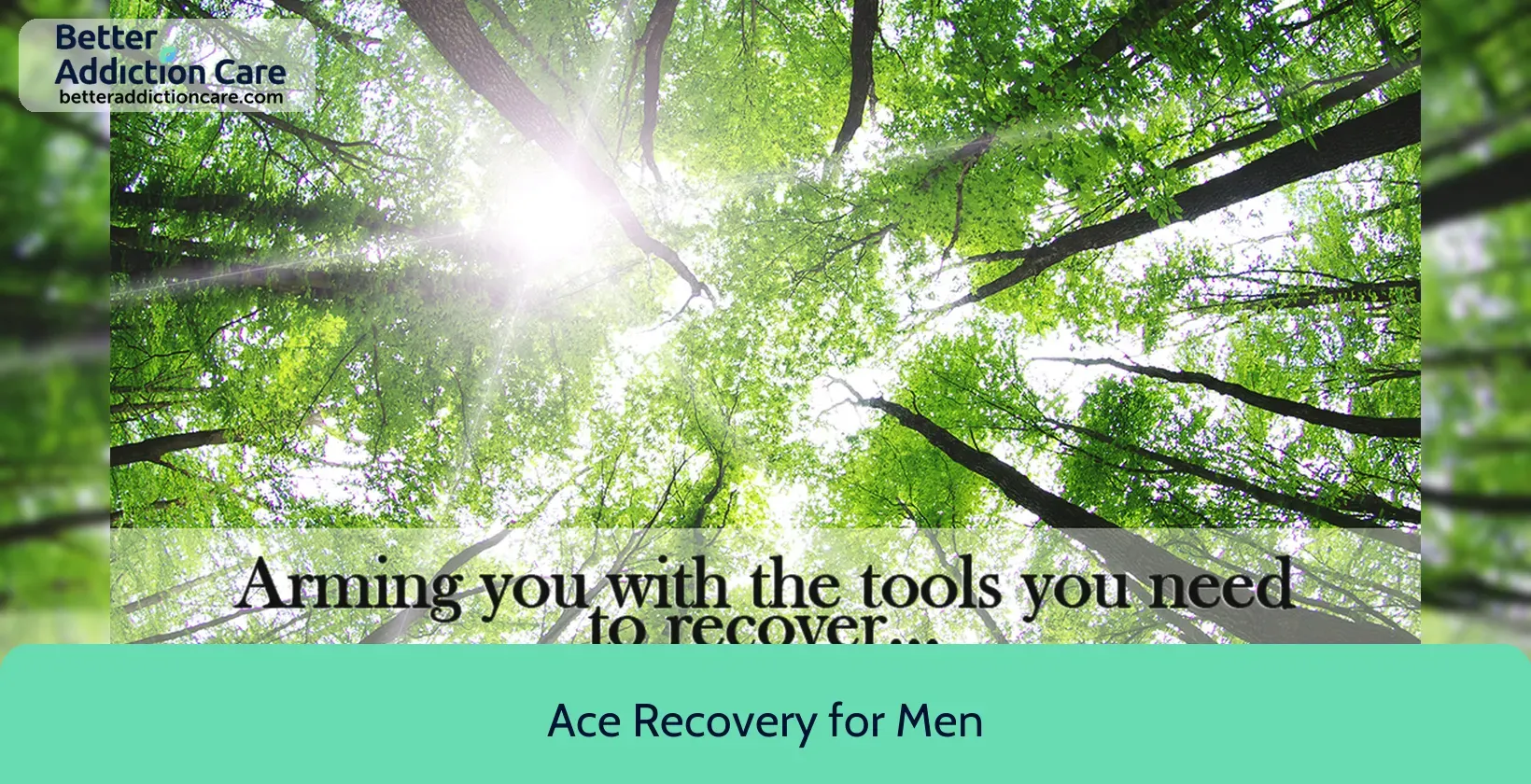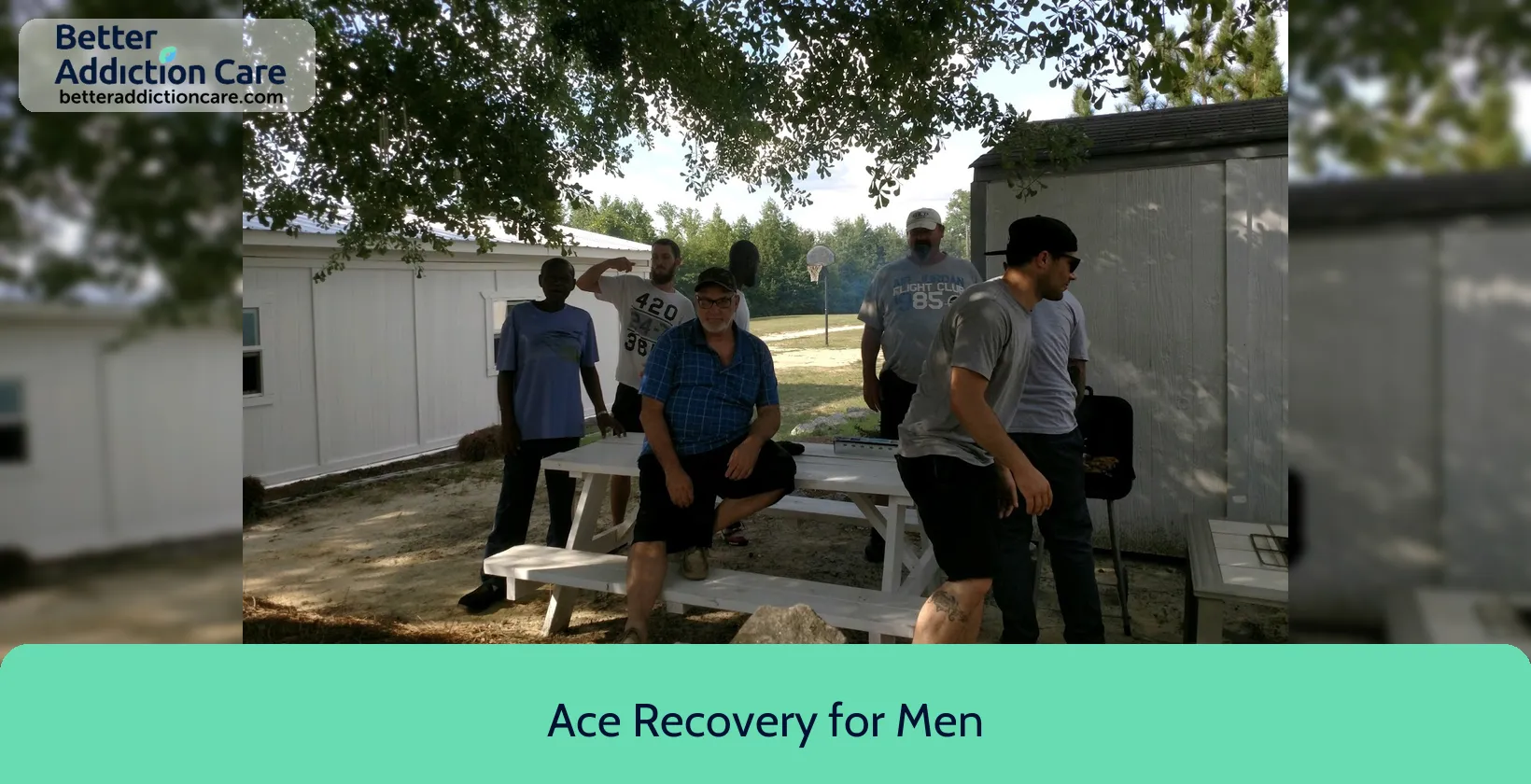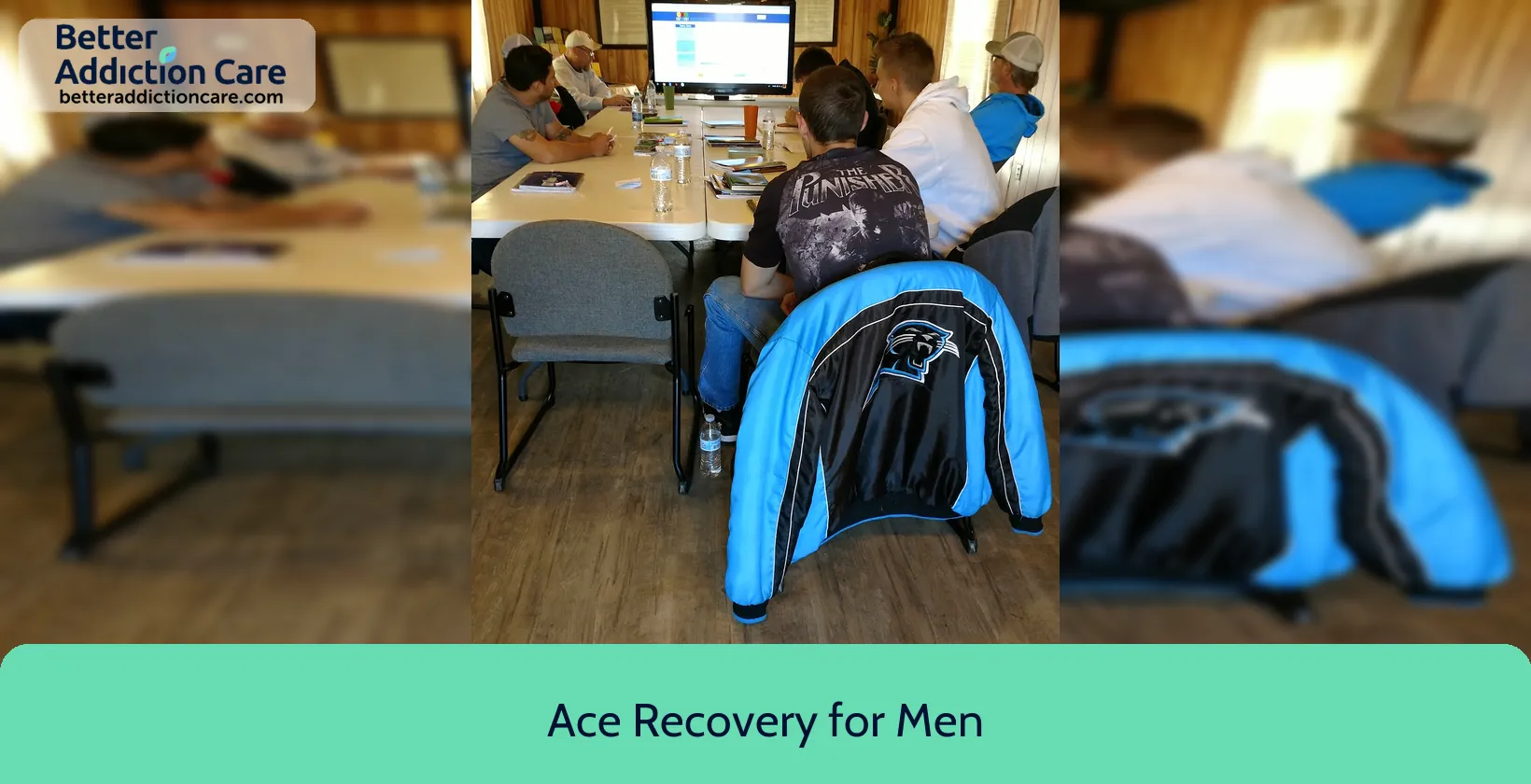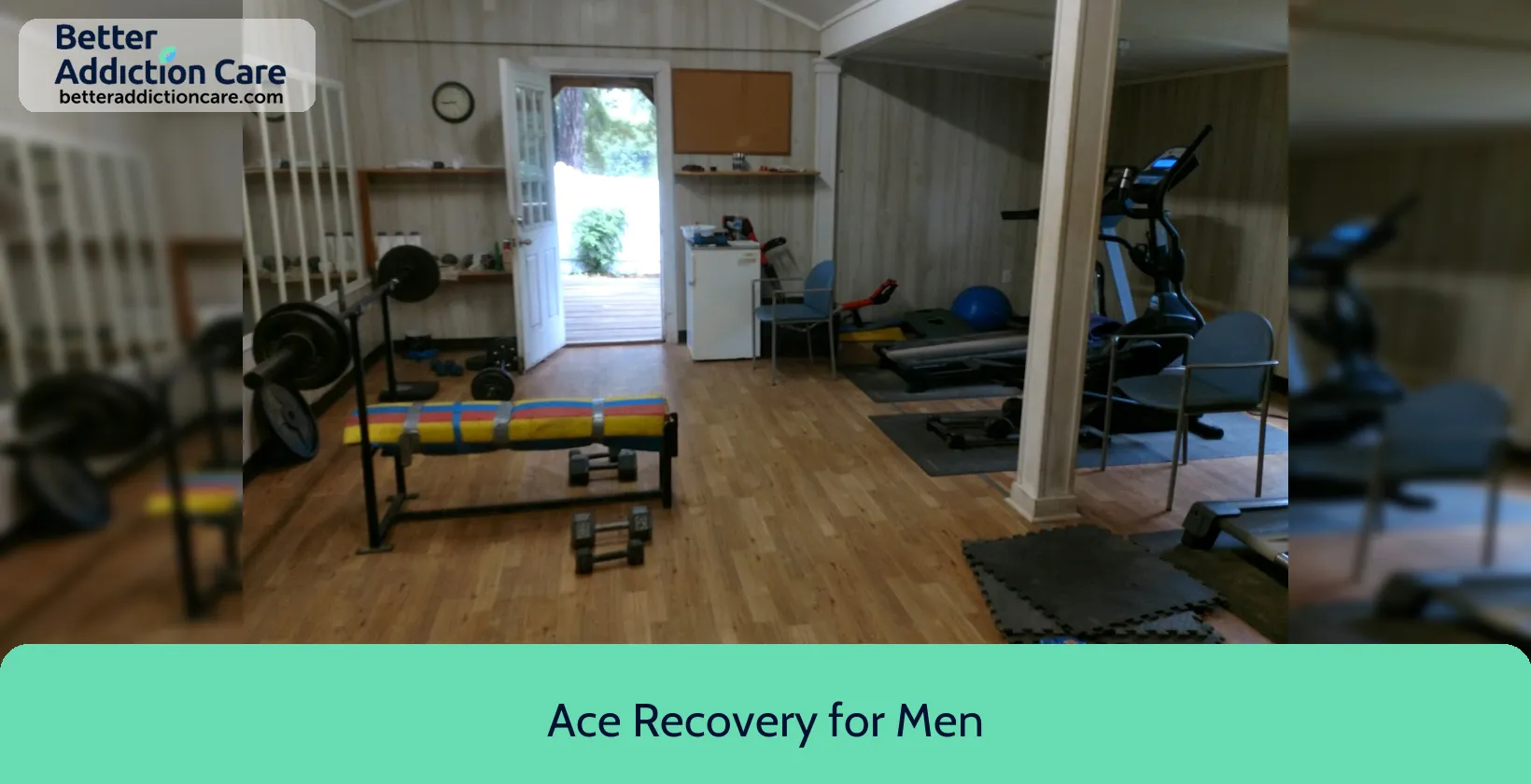Ace Recovery for Men
Overview
Ace Recovery for Men is a substance abuse treatment center for people seeking treatment near Chesterfield County. As part of their treatment modalities for recovery, Ace Recovery for Men provides cognitive behavioral therapy, substance use disorder counseling, and group counseling during treatment. Ace Recovery for Men is located in Chesterfield, South Carolina, accepting cash or self-payment for treatment.
Ace Recovery for Men at a Glance
Payment Options
- Cash or self-payment
- Monthly
- 90 day cost
Assessments
- Comprehensive substance use assessment
- Screening for mental disorders
- Screening for substance use
Age Groups
- Young adults
- Adults
- Seniors
Ancillary Services
- Specially designed program for DUI/DWI clients
- Mental health services
- Social skills development
- Transportation assistance
Highlights About Ace Recovery for Men
6.71/10
With an overall rating of 6.71/10, this facility has following balanced range of services. Alcohol Rehabilitation: 8.00/10, Drug Rehab and Detox: 6.00/10, Insurance and Payments: 6.00/10, Treatment Options: 6.85/10.-
Alcohol Rehabilitation 8.00
-
Treatment Options 6.85
-
Drug Rehab and Detox 6.00
-
Insurance and Payments 6.00
Accreditations
Federally Qualified Health Center:
Federally Qualified Health Center (FQHC) accreditation is a process of evaluation and recognition by the federal government for community health centers that provide comprehensive and accessible healthcare services to underserved populations. FQHC accreditation is essential for centers to receive federal funding and to ensure that they meet standards for quality, patient-centered care.
SAMHSA certification for opioid treatment program (OTP):
SAMHSA's Opioid Treatment Programs (OTP) accreditation is a prestigious recognition that signifies a program's compliance with stringent standards and guidelines established by the Substance Abuse and Mental Health Services Administration (SAMHSA). This accreditation demonstrates an OTP's commitment to providing high-quality, evidence-based care for individuals struggling with opioid use disorder (OUD). It serves as a trusted symbol of accountability and excellence, assuring patients, families, and communities that the OTP offers safe, effective, and comprehensive treatment options for OUD.
Treatment At Ace Recovery for Men
Treatment Conditions
- Alcoholism
- Substance use treatment
Care Levels
- Hospital inpatient treatment
- Short-term residential
- Long-term residential
- Aftercare
- Halfway house
Treatment Modalities
- Cognitive behavioral therapy
- Substance use disorder counseling
- Group counseling
- 12-step facilitation
- Intervention Services
Ancillary Services
Additional Services
- Pharmacotherapies administered during treatment
- Mentoring/peer support
- Drug or alcohol urine screening
Get Help Now
Common Questions About Ace Recovery for Men
Contact Information
Other Facilities in Chesterfield
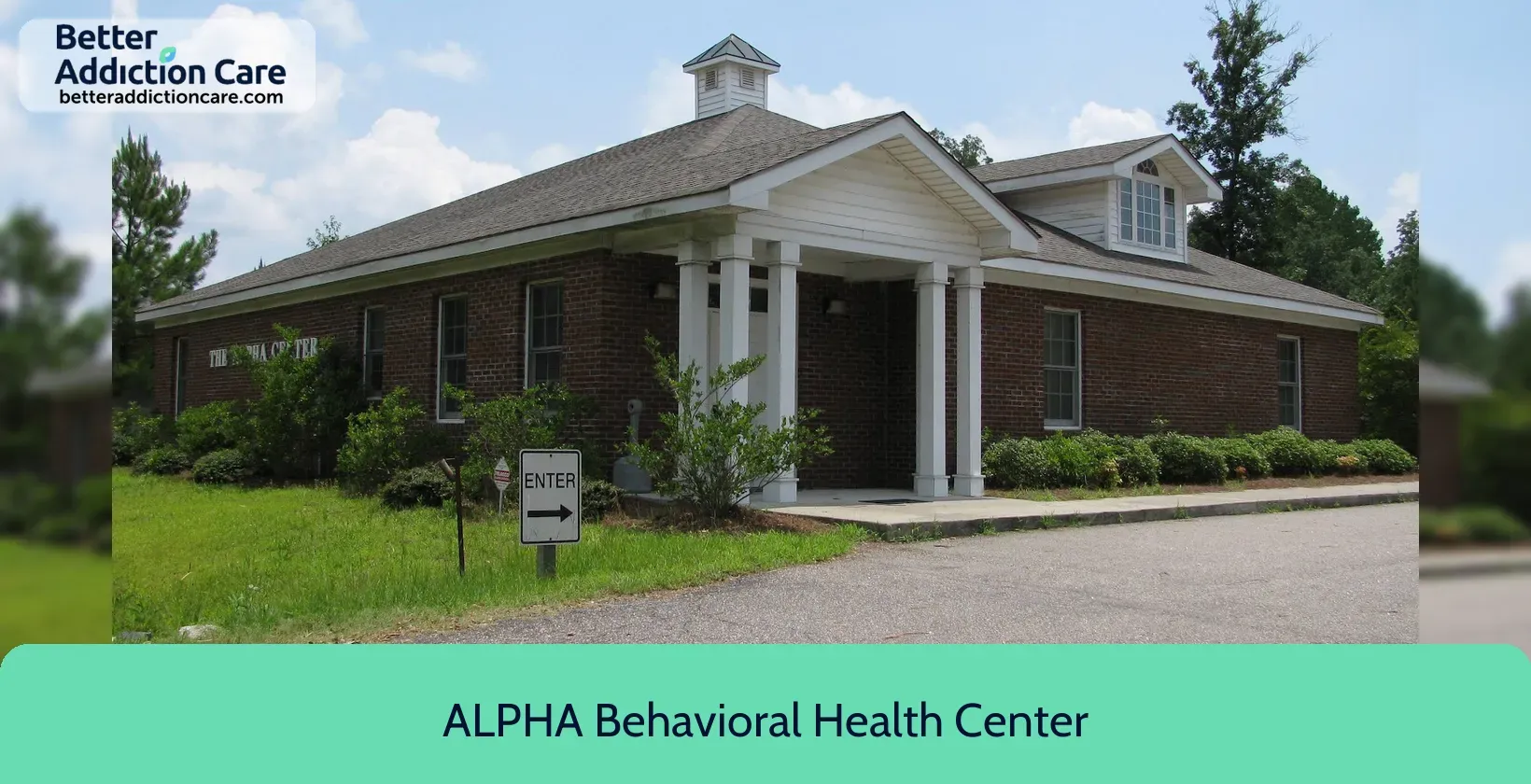
6.96
Browse rehab centers near Chesterfield and in other cities across South Carolina
DISCLAIMER: The facility name, logo and brand are the property and registered trademarks of ALPHA Behavioral Health Center, and are being used for identification and informational purposes only. Use of these names, logos and brands shall not imply endorsement. BetterAddictionCare.com is not affiliated with or sponsored by ALPHA Behavioral Health Center.
